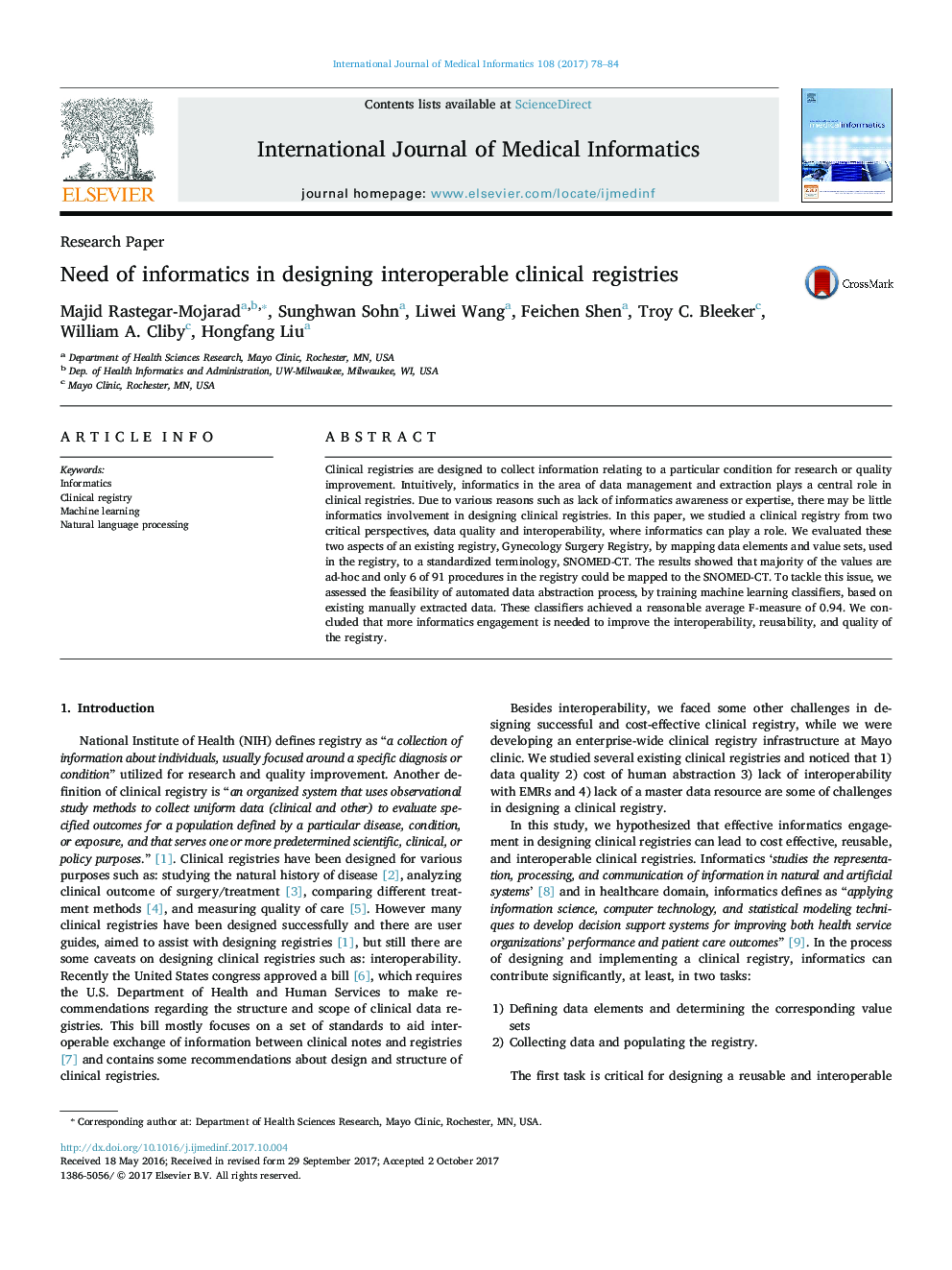| Article ID | Journal | Published Year | Pages | File Type |
|---|---|---|---|---|
| 4966527 | International Journal of Medical Informatics | 2017 | 7 Pages |
Abstract
Clinical registries are designed to collect information relating to a particular condition for research or quality improvement. Intuitively, informatics in the area of data management and extraction plays a central role in clinical registries. Due to various reasons such as lack of informatics awareness or expertise, there may be little informatics involvement in designing clinical registries. In this paper, we studied a clinical registry from two critical perspectives, data quality and interoperability, where informatics can play a role. We evaluated these two aspects of an existing registry, Gynecology Surgery Registry, by mapping data elements and value sets, used in the registry, to a standardized terminology, SNOMED-CT. The results showed that majority of the values are ad-hoc and only 6 of 91 procedures in the registry could be mapped to the SNOMED-CT. To tackle this issue, we assessed the feasibility of automated data abstraction process, by training machine learning classifiers, based on existing manually extracted data. These classifiers achieved a reasonable average F-measure of 0.94. We concluded that more informatics engagement is needed to improve the interoperability, reusability, and quality of the registry.
Related Topics
Physical Sciences and Engineering
Computer Science
Computer Science Applications
Authors
Majid Rastegar-Mojarad, Sunghwan Sohn, Liwei Wang, Feichen Shen, Troy C. Bleeker, William A. Cliby, Hongfang Liu,
